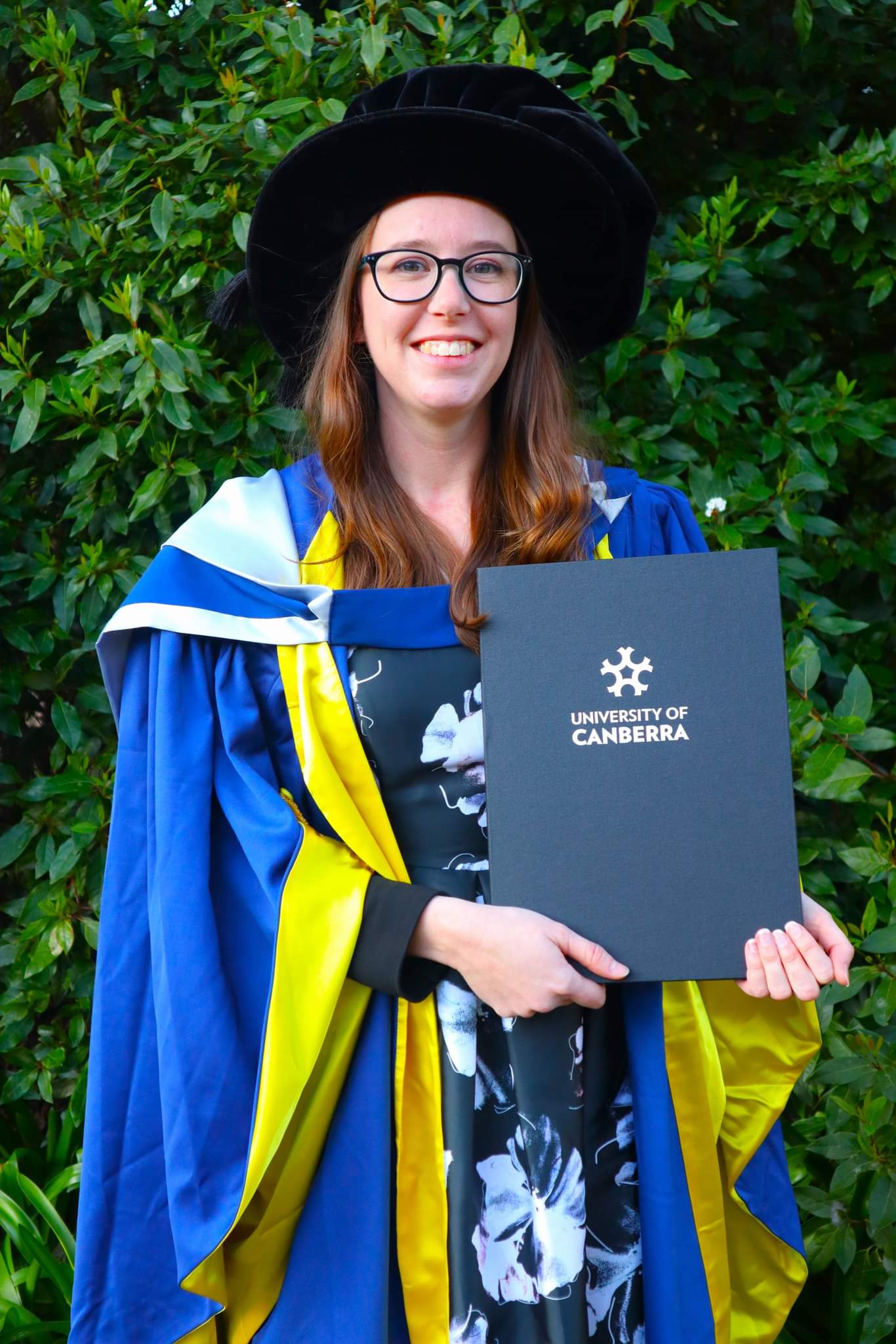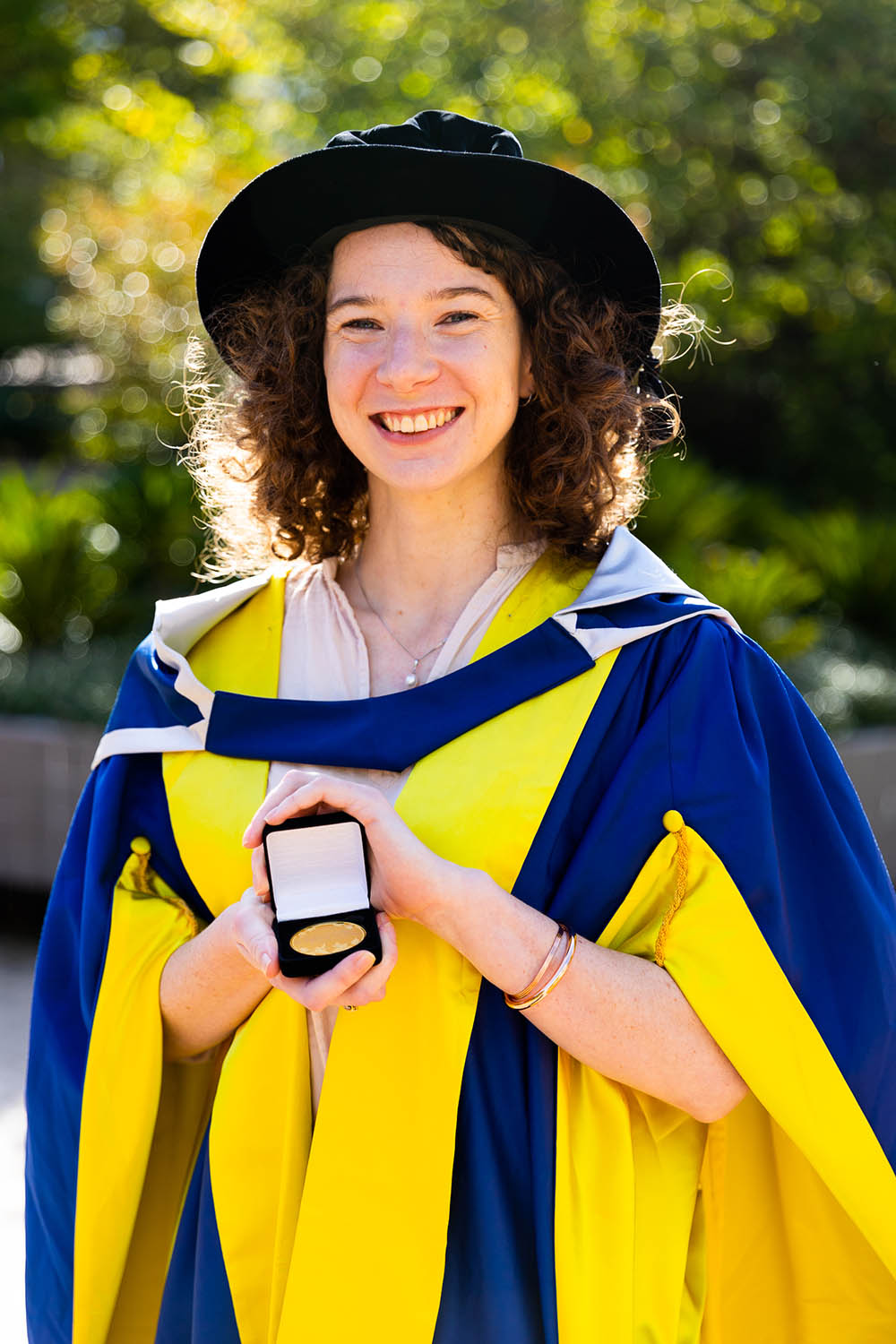Kailey Tonini
31 March 2023: The Stephen Parker Medal, which annually recognises the University of Canberra doctoral student who has presented the most outstanding doctoral thesis in the preceding calendar year, has this year been awarded to two PhD graduates from the Faculty of Science and Technology: Dr Kate Thomson and Dr Sarah Whiteley.
The medal is named after Professor Stephen Parker, who was the University’s Vice-Chancellor between 2007 and 2016. Usually, one medal is awarded per calendar year, but because of the quality of the two top-ranked theses, and with the support of Vice-Chancellor Professor Paddy Nixon and Deputy Vice-Chancellor Academic Professor Geoff Crisp, the Committee selected two recipients for the 2023 award.
“Dr Thomson and Dr Whitely produced theses of such exceptional standard that the Committee found it impossible to separate them for the Stephen Parker Medal, so I am delighted the University has agreed to award this prestigious award to both,” said Deputy Vice Chancellor Research and Enterprise Professor Lucy Johnston.
“Their theses are outstanding examples of the University’s HDR research capability and their value to our institution and faculties.”

Dr Whiteley’s thesis was titled Thermal Influences on Sex Determination and Differentiation in Two Australian Dragon Lizards (Pogona Vitticeps and Amphibolurus Muricatus). Her work has contributed significantly to understanding the mechanisms governing sex determination and sex reversal in reptiles.
Dr Whiteley published seven chapters as part of her thesis. Her supervisors were Dr Arthur Georges (primary), with Dr Clare Holleley, Dr Craig Smith, Dr Sudha Rao and Dr Vera Weisbecker.
“A PhD is quite a gruelling undertaking, so it felt great to have my work recognised by the University with this esteemed award,” Dr Whiteley said.
“I was very fortunate to undertake my PhD in a high performing research team that supported my work. In particular, Professor Georges from the University’s Centre for Conservation Ecology and Genomics and Dr Holleley from CSIRO were both incredible mentors who continue to support my research career.”

Dr Thomson completed her PhD thesis, titled The retinal dopamine system – A target for pharmacological prevention of myopia, in the Faculty of Science and Technology as well. Dr Thomson produced six publications during her candidature and the value of her work will translate well to a potential pharmacological treatment for myopia (short-sightedness).
She was supervised by Dr Regan Ashby (primary), with Dr Reena Ghildyal and Professor Ian Morgan within the Faculty's Biomedical Research Cluster.
“It was an absolute privilege to be able to publish all the chapters of my thesis alongside my research team during my candidature,” Dr Thomson said.
“Developing my research skills in a collaborative environment has been invaluable in my development as a scientist and reminds me always to think of how my research fits into the ‘big picture’. Every time I think about my research and what I was able to achieve during my PhD, I think of the support from my family, my research family, and my supervisor, who deserve more thanks than I will ever be able to give.”
The University congratulates Dr Whiteley, Dr Thomson and all of its HDR graduates on their graduation and achievements.


